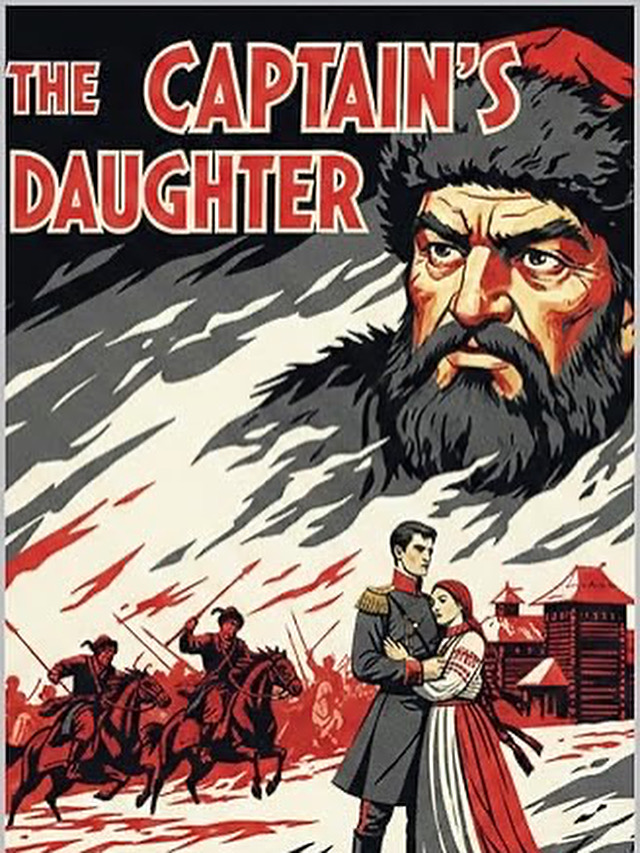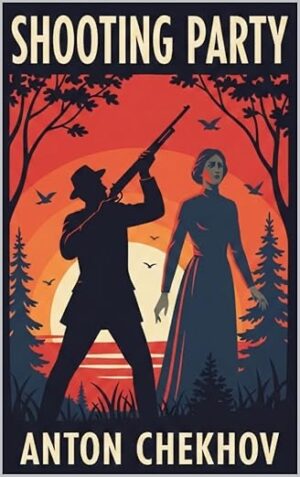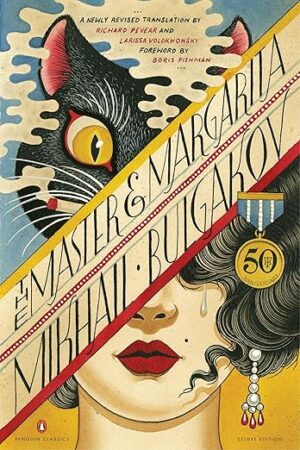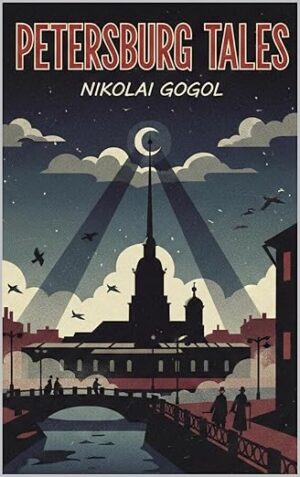Chapter I. The Guards Sergeant
“He’d be a captain in the guards tomorrow.”
“That’s not necessary; let him serve in the army.”
“Well said! Let him suffer a bit… And who’s his father?”
— Knyazhnin.
My father, Andrei Petrovich Grinyov, served under Count Münnich in his youth and retired as a premier-major in 17… From then on, he lived in his Simbirsk village, where he married a young woman, Avdotya Vasilievna U., the daughter of a poor local nobleman. There were nine children of us. All my brothers and sisters died in infancy.
My mother was still pregnant with me when I was already enrolled as a sergeant in the Semyonovsky Regiment, thanks to the favor of Major of the Guards Prince V., a close relative of ours. If, against all expectations, my mother had given birth to a daughter, my father would have reported the death of the non-appearing sergeant to the proper authorities, and that would have been the end of the matter. I was considered to be on leave until the completion of my education. At that time, we were not brought up in the modern way. From the age of five, I was handed over to the groom Savelich, who was appointed as my tutor for his sober conduct. Under his supervision, by the age of twelve, I had learned Russian literacy and could judge the qualities of a greyhound dog quite intelligently. At that time, my father hired a Frenchman for me, Monsieur Beaupré, who was brought from Moscow along with a year’s supply of wine and Provencal oil. His arrival greatly displeased Savelich. “Thank God,” he grumbled to himself, “the child seems to be washed, combed, and fed. Why on earth spend extra money and hire a ‘monsieur,’ as if we don’t have our own people anymore!”
In his homeland, Beaupré had been a hairdresser, then a soldier in Prussia, and then came to Russia pour être outchitel (to be a teacher), without quite understanding the meaning of the word. He was a good fellow, but flighty and dissolute to the extreme. His main weakness was a passion for the fair sex; not infrequently, he received blows for his amorousness, from which he groaned for days on end. Furthermore, he was not (in his own words) an “enemy of the bottle,” that is (to speak in Russian), he liked to have a drop too much. But since wine was only served at our dinner table, and just a small glass at that, and the tutors were usually passed over, my Beaupré very quickly became accustomed to Russian tincture and even came to prefer it to the wines of his homeland, as being incommensurably more beneficial for the stomach. We got along at once, and although by contract he was obliged to teach me French, German, and all the sciences, he preferred to quickly learn how to stammer a bit in Russian from me, and then each of us attended to our own business. We lived in perfect harmony. I couldn’t have wished for a better mentor. But soon fate separated us, and this is how it happened:
The laundress Palashka, a thickset and pockmarked girl, and the cross-eyed milkmaid Akulka somehow agreed at the same time to fall at my mother’s feet, confessing their criminal weakness and weeping as they complained about the “monsieur” who had seduced their inexperience. My mother did not like to trifle with such matters and complained to my father. His justice was swift. He immediately demanded to see the scoundrel of a Frenchman. It was reported that the monsieur was giving me my lesson. My father went into my room. At that moment, Beaupré was sleeping the sleep of the innocent on the bed. I was busy with a project. You see, a geographical map had been ordered for me from Moscow. It hung on the wall unused and had long tempted me with the width and quality of its paper. I decided to make a kite out of it and, taking advantage of Beaupré’s sleep, set to work. My father walked in just as I was attaching a hemp tail to the Cape of Good Hope. Seeing my geographical exercises, my father pulled me by the ear, then ran to Beaupré, woke him up very roughly, and began showering him with reproaches. In his confusion, Beaupré tried to get up but couldn’t: the unfortunate Frenchman was dead drunk. Seven troubles, one answer. My father lifted him from the bed by the collar, pushed him out the door, and that very same day drove him from the house, to the indescribable joy of Savelich. That was the end of my education.
I lived as an ignoramus, chasing pigeons and playing leapfrog with the stable boys. Meanwhile, I turned sixteen. That’s when my fate changed.
One autumn day, my mother was boiling honey jam in the drawing-room, and I, licking my lips, watched the frothing scum. My father was reading the Court Calendar, which he received annually, by the window. This book always had a powerful influence on him: he never reread it without special interest, and this reading always produced a surprising agitation of bile in him. My mother, who knew all his habits and customs by heart, always tried to hide the unfortunate book as far away as possible, and thus the Court Calendar would sometimes not come to his notice for months. On the other hand, when he did happen to find it, he would then not let it out of his hands for hours on end. So, my father was reading the Court Calendar, occasionally shrugging his shoulders and repeating to himself, “Lieutenant-General!… He was a sergeant in my company!… Knight of both Russian orders!… And how long ago was it that we…” Finally, my father threw the calendar on the sofa and sank into a reverie that boded no good.
Suddenly he turned to my mother: “Avdotya Vasilievna, how old is Petruska?”
“He’s just turned seventeen,” my mother replied. “Petrusha was born the very same year that Aunt Nastasya Garasimovna went blind, and when…”
“Enough,” my father interrupted. “It’s time for him to join the service. He’s had enough of running around the servant girls’ quarters and climbing pigeon lofts.”
The thought of an imminent separation from me so struck my mother that she dropped her spoon into the pot, and tears streamed down her face. On the contrary, it is hard to describe my delight. The thought of service merged in my mind with thoughts of freedom, of the pleasures of life in Petersburg. I imagined myself as an officer of the Guards, which, in my opinion, was the height of human happiness.
My father did not like to change his intentions or to postpone their execution. The day of my departure was set. The day before, my father announced that he intended to write with me to my future commander and demanded a pen and paper.
“Don’t forget, Andrei Petrovich,” said my mother, “to send my regards to Prince B.; tell him I hope he won’t withhold his favors from Petrusha.”
“What nonsense!” my father replied, frowning. “Why on earth would I write to Prince B.?”
“But you said you were going to write to Petrusha’s commander?”
“And what of it?”
“But Petrusha’s commander is Prince B. Petrusha is enrolled in the Semyonovsky Regiment.”
“Enrolled! And what do I care that he’s enrolled? Petrusha isn’t going to Petersburg. What will he learn serving in Petersburg? To squander money and carouse? No, let him serve in the army, let him pull his weight, let him smell some gunpowder, and become a soldier, not a fop. Enrolled in the Guards! Where’s his passport? Hand it here.”
My mother found my passport, which was kept in her casket along with the shirt in which I was baptized, and handed it to my father with a trembling hand. My father read it attentively, laid it on the table in front of him, and began his letter.
Curiosity tormented me: where was I being sent, if not to Petersburg? I did not take my eyes off my father’s pen, which moved quite slowly. Finally, he finished, sealed the letter in one package with the passport, took off his glasses, and, calling me over, said, “Here is a letter for Andrei Karlovich R., my old comrade and friend. You are going to Orenburg to serve under his command.”
Thus, all my brilliant hopes were dashed! Instead of a cheerful life in Petersburg, boredom awaited me in a remote and desolate region. The service, which just a minute ago I had thought of with such delight, now seemed like a heavy misfortune. But there was no arguing. The next morning, a travel kibitka was brought to the porch; a trunk was placed in it, a small cellar with a tea set, and bundles with buns and pies, the last tokens of home pampering. My parents blessed me. My father said to me, “Goodbye, Pyotr. Serve faithfully the one to whom you swear allegiance; obey your superiors; don’t curry their favor; don’t volunteer for service; don’t beg off from service; and remember the proverb: guard your clothes while they’re new, and your honor while you’re young.” My mother, in tears, instructed me to take care of my health and Savelich to look after the child. They put a hare-skin coat on me, and a fox-fur coat on top of that. I got into the kibitka with Savelich and set off on the road, shedding tears.
That same night, I arrived in Simbirsk, where I was to stay for a day to buy necessary things, which was entrusted to Savelich. I stayed at an inn. Savelich went to the shops in the morning. Bored with looking out the window at the dirty alley, I went to wander through all the rooms. Entering the billiards room, I saw a tall gentleman of about thirty-five, with a long black mustache, in a dressing gown, with a cue in his hand and a pipe in his teeth. He was playing with the marker, who, when he won, drank a shot of vodka, and when he lost, had to crawl under the billiards table on all fours. I began to watch their game. The longer it went on, the more frequent the crawls on all fours became, until finally the marker remained under the billiards table. The gentleman uttered several strong expressions over him as a kind of eulogy and offered me a game. I refused, due to my lack of skill. This seemed strange to him, apparently. He looked at me with what seemed to be pity; however, we started a conversation. I learned that his name was Ivan Ivanovich Zurin, that he was a cavalry captain of a hussar regiment and was in Simbirsk to recruit soldiers, and was staying at the inn. Zurin invited me to have dinner with him, whatever God sent, in a soldier’s fashion. I gladly agreed. We sat down at the table. Zurin drank a lot and treated me too, saying that I needed to get used to the service; he told me army anecdotes at which I almost fell over with laughter, and we got up from the table as complete friends. Then he offered to teach me how to play billiards. “This,” he said, “is essential for one of our kind, a serviceman. On a campaign, for example, you arrive in a town — what are you to do? You can’t just beat up Jews all the time. You’ll have no choice but to go to an inn and play billiards; and for that, you need to know how to play!” I was completely convinced and took to the lesson with great diligence. Zurin loudly encouraged me, marveled at my rapid progress, and, after a few lessons, offered to play for money, for one farthing, not for the winnings, but so as not to play for nothing, which, in his words, was the worst habit. I agreed to that too, and Zurin ordered punch and persuaded me to try it, repeating that I needed to get used to the service; and what good was service without punch! I obeyed him. Meanwhile, our game continued. The more often I sipped from my glass, the more reckless I became. The balls constantly flew off the table; I grew hot-headed, swore at the marker who counted God knows how, increased the stakes by the hour, in short — I behaved like a boy who had broken free. Meanwhile, time passed unnoticed. Zurin glanced at his watch, put down his cue, and informed me that I had lost a hundred rubles. This unsettled me a little. My money was with Savelich. I began to apologize. Zurin interrupted me: “Oh, please! Don’t you worry about it. I can wait, and in the meantime, let’s go to Arinushka’s.”
What could I do? I ended the day as dissolutely as I had begun it. We had dinner at Arinushka’s. Zurin kept pouring me drinks, repeating that I needed to get used to the service. Getting up from the table, I could barely stand on my feet; at midnight, Zurin took me back to the inn.
Savelich met us on the porch. He gasped, seeing the unmistakable signs of my zeal for the service. “What happened to you, sir?” he said in a pitiful voice. “Where did you get so loaded? Oh, Lord! Such a sin has never happened before!” — “Shut up, you old fool!” I answered, stammering. “You must be drunk. Go to bed… and put me to bed.”
The next day I woke up with a headache, vaguely remembering the events of the previous day. My reflections were interrupted by Savelich, who came in to me with a cup of tea. “It’s too early, Pyotr Andreich,” he said, shaking his head, “too early for you to start carousing. Who do you take after? It seems neither your father nor your grandfather were drunkards; and there’s no need to speak of your mother: she never put anything in her mouth but kvas. And who is to blame for everything? That cursed ‘monsieur.’ He’d always pop over to Antipievna’s: ‘Madam, je vous prie, vodky.’ (I beg you, a bit of vodka). There’s your je vous prie! No question: he taught you well, that son of a dog. And was it really necessary to hire a pagan for a tutor, as if the master didn’t have his own people anymore!”
I was ashamed. I turned away and said to him, “Get out, Savelich; I don’t want any tea.” But it was difficult to stop Savelich once he started a sermon. “You see, Pyotr Andreich, what it’s like to go on a spree. Your head feels heavy, and you don’t feel like eating. A drinking man is good for nothing… Drink some cucumber pickle brine with honey, but it would be best to have a small glass of tincture to cure the hangover. Would you like some?”
At that moment, a boy came in and handed me a note from I.I. Zurin. I unfolded it and read the following lines:
“Dear Pyotr Andreevich, please send me with my boy the hundred rubles you lost to me yesterday. I am in great need of money.
Ready to serve,
Ivan Zurin.”
There was nothing to be done. I put on an air of indifference and, turning to Savelich, who was the careful custodian of my money, my linen, and all my affairs, I ordered him to give the boy a hundred rubles. “What! Why?” asked the astonished Savelich. “I owe them to him,” I replied with the utmost coldness. “Owe! — Savelich protested, becoming more and more bewildered by the minute. — But when, sir, did you manage to get into debt with him? Something’s not right here. With all due respect, sir, I will not hand over the money.”
I thought that if I did not get the better of the stubborn old man at this decisive moment, it would be difficult for me to free myself from his guardianship later on, and, giving him a proud look, I said: “I am your master, and you are my servant. The money is mine. I lost it because I felt like it. And I advise you not to be so clever and to do what you are told.”
Savelich was so struck by my words that he clapped his hands and stood stock-still. “Why are you just standing there!” I shouted angrily. Savelich began to weep. “My dear Pyotr Andreich,” he said in a trembling voice, “don’t kill me with sorrow. My light! Listen to me, an old man: write to this robber that you were only joking, that we don’t even have that kind of money. A hundred rubles! Lord have mercy! Tell him that your parents strictly forbade you to gamble, except with nuts…” “Stop lying,” I interrupted sternly. “Hand over the money or I’ll kick you out.”
Savelich looked at me with deep sorrow and went to get my debt. I felt sorry for the poor old man, but I wanted to break free and prove that I was no longer a child. The money was delivered to Zurin. Savelich hurried to get me out of that cursed inn. He appeared with the news that the horses were ready. With an uneasy conscience and silent repentance, I left Simbirsk, without saying goodbye to my teacher and never expecting to see him again.






Reviews
There are no reviews yet.